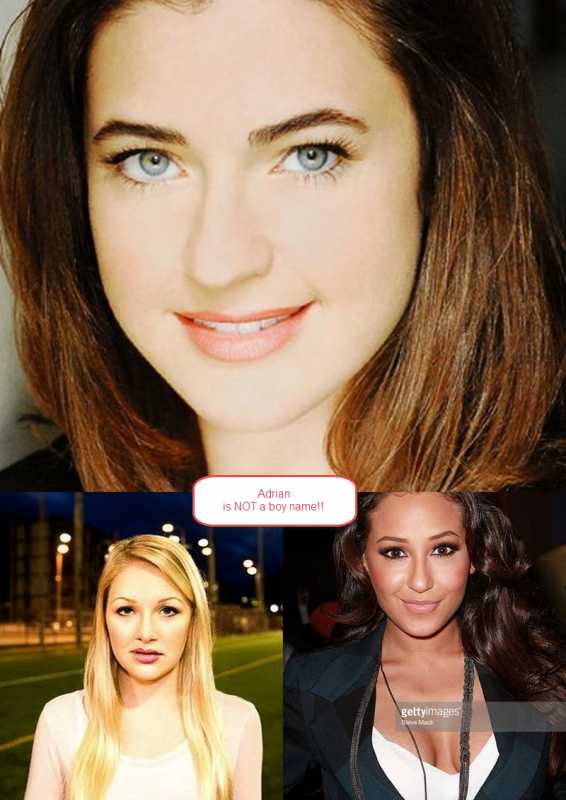TgR Wall › Forums › Media-Watch › Transgender Media › Indigenous languages and gender role diversity
-
Indigenous languages and gender role diversity
Posted by Anonymous on 03/04/2016 at 5:07 amI guess that North American ‘two spirit’ concepts are some of the best known of some Indigenous framing of human gender diversity, but this brief article (passed on to me by one of my children) maybe helps us reflect further on how our very language structures and terminology shapes and defines us and others? Another reason for encouraging inter-cultural diversity and expression on these issues?
http://www.theglobeandmail.com/life/health-and-fitness/health/indigenous-languages-recognize-gender-states-not-even-named-in-english/article29130778/Anonymous replied 9 years ago 2 Members · 6 Replies -
6 Replies
-
Anonymous
Guest03/04/2016 at 8:13 amThank you for that article Josephine. I liked the examples of how other languages can be gender neutral and names appeared to be too.
“Today my grandma just calls me ‘noozhis,’ which means ‘grandkid,’ or by my nation name, which is ‘Waasegiizhigook,’ meaning ‘the light that shines through the clouds.’ She really takes out all the gendered stuff for me, which I really like.”
In English do we have any gender neutral names? There are shared names like Terri and Terry where different spelling are used to indicate gender. The only one I can think of is Pat which is a short name for Patrick and Patricia.
-
Sara_Timms wrote:In English do we have any gender neutral names? There are shared names like Terri and Terry where different spelling are used to indicate gender. The only one I can think of is Pat which is a short name for Patrick and Patricia.
Not sure if this is wandering off the topic of indigenous languages. But lookup unisex names on Wikipedia and you will get a nice long list of names
https://en.wikipedia.org/wiki/Unisex_nameSlightly more on topic the article points out that different cultures have different attitudes to gender in names.
A search for “uNisex name” will give many other web sites – many of which have a longer and better list than Wikipedia.
Of course I dismiss all the name lists that don’t include Adrian. Because some very attractive girls are called Adrian!

-
I haven’t googled unisex names but can easily think of heaps of them. The first to leap into my mind was “Jan” as in Jan Morris the author formerly known as “James” who deliberately chose her new name because it was androgenous. Even “Carol” can be a boys name for some people with an east european background.
-
Anonymous
Guest04/04/2016 at 9:52 amOn names my guess is that we are slowly becoming more flexible in English-speaking cultures – partly through names from other than Anglo backgrounds but also with the increasing propensity for parents and children as they grow up to adapt traditional names or spelling or invent new names altogether. I suspect that this will aid and is aided by growing transgender emergence and acceptance?
On language generally, one of my favourite writers is English has always been Ursula le Guin who, in exploring non-binary and gender fluidity, used some different terms and expressions – as other writers have also begun to do since (maybe there were other progenitors? – anyone know?). One aspect of this was exploring a society (in The Dispossessed) without ‘propertarian’ pronouns (my, his, her etc), using simply for example ‘the chair’ rather than ‘my chair’. Not sure that will catch on! – but maybe the pronouns battle is a symptom of society playing with this? My sense is that English is such a successful language not only for the obvious reason of sheer power of various sorts and imperialism but because of its extraordinary reception of different and new words and its adaptability. Hopefully it will continue to learn – not least from Indigenous cultures and languages if they can be valued.
-
Anonymous
Guest04/04/2016 at 1:45 pmUrsula le Guin is also one of my favorite authors. Another one of her books The Left Hand of Darkness explores a race of people where an individual is both male and female. As such anyone could have children. No he and shes, no mothers and fathers and where people presented as people not women or men. The story is told from the point of view of an ambassador from earth who has arrived at the planet Gethen to open a dialogue with the people of Gethen to join a inter planetary alliance. The ambassador struggles with his mission because he cannot understand Gethen culture that does not have male and female roles and there is no genders.
Ursula le Guin’s father was an important anthropologist and an anthropology approach to seeing societies in non-judgmental manner is woven through her writing. In my view an important aspect of the article at the beginning of this thread is that indigenous people now have their own voice in English that can enrich our perspectives. We do not need anthropologists to write for them.
Off topic I know but I was a avid le Guin reader as a young adult, a very difficult time in my life when I was determined to prove to myself that crossdressing was a adolescent thing I had out grown. Her books were a source of light in a darken place.
-
Anonymous
Guest04/04/2016 at 2:26 pmI think there is an Adrian missing front the photo collage. I hope I am not amiss in making this suggestion:
http://forum.tgr.net.au/cms/myprofile/my-dashboard?view=browse&set=album&type=photo&pid=25&aid=5
